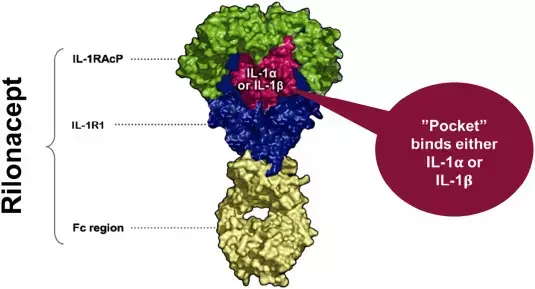- Home
- Medical news & Guidelines
- Anesthesiology
- Cardiology and CTVS
- Critical Care
- Dentistry
- Dermatology
- Diabetes and Endocrinology
- ENT
- Gastroenterology
- Medicine
- Nephrology
- Neurology
- Obstretics-Gynaecology
- Oncology
- Ophthalmology
- Orthopaedics
- Pediatrics-Neonatology
- Psychiatry
- Pulmonology
- Radiology
- Surgery
- Urology
- Laboratory Medicine
- Diet
- Nursing
- Paramedical
- Physiotherapy
- Health news
- Fact Check
- Bone Health Fact Check
- Brain Health Fact Check
- Cancer Related Fact Check
- Child Care Fact Check
- Dental and oral health fact check
- Diabetes and metabolic health fact check
- Diet and Nutrition Fact Check
- Eye and ENT Care Fact Check
- Fitness fact check
- Gut health fact check
- Heart health fact check
- Kidney health fact check
- Medical education fact check
- Men's health fact check
- Respiratory fact check
- Skin and hair care fact check
- Vaccine and Immunization fact check
- Women's health fact check
- AYUSH
- State News
- Andaman and Nicobar Islands
- Andhra Pradesh
- Arunachal Pradesh
- Assam
- Bihar
- Chandigarh
- Chattisgarh
- Dadra and Nagar Haveli
- Daman and Diu
- Delhi
- Goa
- Gujarat
- Haryana
- Himachal Pradesh
- Jammu & Kashmir
- Jharkhand
- Karnataka
- Kerala
- Ladakh
- Lakshadweep
- Madhya Pradesh
- Maharashtra
- Manipur
- Meghalaya
- Mizoram
- Nagaland
- Odisha
- Puducherry
- Punjab
- Rajasthan
- Sikkim
- Tamil Nadu
- Telangana
- Tripura
- Uttar Pradesh
- Uttrakhand
- West Bengal
- Medical Education
- Industry
Interleukin (IL)-1 inhibitor rilonacept resolves and prevents recurrent pericarditis

In patients with recurrent pericarditis, treatment with rilonacept, an engineered fusion protein that acts as an IL-1 trap, leads to a rapid resolution of recurrent pericarditis episodes and reduces the risk of pericarditis recurrence suggests the findings of RHAPSODY trial. The research has been published in The NEW ENGLAND JOURNAL of MEDICINE.
In a previous phase II trial on Rilonacept, an injectable, once-weekly IL-1α and IL-1β cytokine trap, shown to resolve pericardial inflammation. The pathogenesis of recurrent pericarditis is still poorly understood, but evidence suggests that both the cytokines (IL-1α and IL-1β) are important for creating a vicious cycle and therefore, inhibition of both cytokines is vital to achieve the full control of inflammation. For this purpose, researchers conducted a study to determine the efficacy and safety of blocking both cytokines with rilonacept, an Fc fusion protein comprising the extracellular domains of IL-1 receptor (IL-1R) type 1 and IL-1R accessory protein that functions as a soluble decoy IL-1R to neutralize IL-1α and IL-1β.
It was a phase 3, multicenter, double-blind, event-driven, randomized-withdrawal trial of rilonacept in 86 patients with acute symptoms of recurrent pericarditis and systemic inflammation. All of them were started on rilonacept therapy after the second episode of pericarditis, with background medication discontinued. After a 12-week run-in, the 61 participants who demonstrated a clinical response were then randomized to continue on the study drug or placebo. The major outcome assessed was the time to the first pericarditis recurrence using the Cox proportional-hazards model. The researcher also assessed safety end-points.
Key findings of the study were:
♦During the run-in period, researchers observed pain resolved within 5 days, while C-reactive protein levels normalized by day 7.
♦They reported 4 adverse events during the run-in phase, mostly injection-site reactions and upper respiratory tract infections.
♦During the randomized phase, they observed a few patients who had their pericarditis recur on rilonacept to calculate a median time to recurrence whereas, the median time to adjudicated recurrence in the patients who'd switched to placebo was 8.6 weeks.
♦During this period, they noted that 2 of 30 patients (7%) in the rilonacept group had a pericarditis recurrence compared with 23 of 31 patients (74%) in the placebo group.
The authors concluded, "Among patients with recurrent pericarditis, rilonacept led to rapid resolution of recurrent pericarditis episodes and a significantly lower risk of pericarditis recurrence than placebo".
For further information:
Medical Dialogues Bureau consists of a team of passionate medical/scientific writers, led by doctors and healthcare researchers. Our team efforts to bring you updated and timely news about the important happenings of the medical and healthcare sector. Our editorial team can be reached at editorial@medicaldialogues.in.
Dr Kamal Kant Kohli-MBBS, DTCD- a chest specialist with more than 30 years of practice and a flair for writing clinical articles, Dr Kamal Kant Kohli joined Medical Dialogues as a Chief Editor of Medical News. Besides writing articles, as an editor, he proofreads and verifies all the medical content published on Medical Dialogues including those coming from journals, studies,medical conferences,guidelines etc. Email: drkohli@medicaldialogues.in. Contact no. 011-43720751


